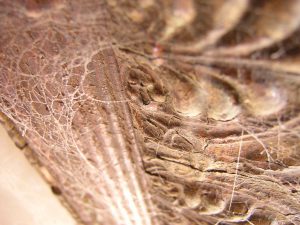Even the most house proud of us will find that dust still accumulates in our homes. Dust is brought into homes every time a window or door is opened. It also circulates around our homes as the air is moved by our HVAC system. So, how does dust impact your air conditioner?
Your Air Filters:
Air conditioners are equipped with at least one air filter. The air filters are designed to trap dust and debris to protect the internal components and improve the air quality. Most manufacturers recommend changing AC filters approximately every one to two months. If you have pets or smokers in your household, you may need to change your air filters more frequently. As dust accumulates in the filters, it restricts the flow of air. As the airflow is compromised, the system is forced to work harder to maintain your desired temperature. Some systems may even have a safety feature where the equipment will shut down if the filters become clogged and airflow has been reduced.
Clogged Coils:
One of the most important components of your air conditioning system are the coils. Air conditioners need the coils to condense the refrigerant and transfer heat from inside your home. Dust is attracted to the coils, and when the coil is coated, it creates an insulation barrier, which compromises the refrigerant heat transfer. This forces the system to work harder, using more energy. Dusty coils are also prone to becoming frozen, further preventing the coils from working properly. Trying to scrape off the ice will not only put your equipment at risk of damage, but it is also likely to just reform since you haven’t dealt with the underlying issue.
Compromised Energy Efficiency:
When dust accumulates inside air conditioning equipment, it places greater strain on the system. As the system is forced to work harder, you may experience hot and cold spots in different areas of your home. You may also notice that your system is not cooling properly as it struggles to reach and maintain your desired temperature setting. All of this strain increases energy usage, which means that you may notice a dramatic increase in your cooling costs.
Increased Risk of Equipment Failure:
The additional strain caused by dust can not only increase energy use, but it also increases the risk of equipment failure. As the system works harder and harder, components are placed under increasing strain, prompting failure. Even if only a small component fails, it can trigger a cascade failure. In the best case scenario, you may be faced with a hefty repair bill, but at worst you may need to replace your equipment prematurely.
Dust can have a terrible effect on your air conditioning equipment, so it is vital that your system is checked and serviced regularly. An experienced technician can not only check for any worn components, but also ensure that it is free of any accumulation of dust or debris. This will reduce the risk of breakdown and ensure that your system can operate at peak efficiency.
